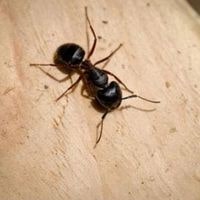How to make sheets softer
How to make sheets softer. Organic cotton sheets are not just great for the environment – they’re also naturally softer than their counterparts because only certified organic cotton is used.
One example of how this works would be if one were to use “regular” (aka conventional) cotton instead of certified organic cotton.
The dyeing process/manufacturing methods, in general, can be pretty harsh on the cotton, causing it to lose its natural softness over time.
This is why manufacturers have to treat cotton with chemicals. However, if one chooses sheets made from exclusively organic materials, not only does one avoid using potentially harmful pesticides or chemicals.
But you also get a lot of bang for your buck! Organic cotton tends to feel softer than non-organic varieties, and these linens will continue to look brand new well into their later years because of the low maintenance/care needed.
How to Make Sheets Softer

If your bedsheets aren’t as soft or comfortable as you’d like them to be, there’s a simple hack for how to make them feel like butter.
Just toss the fitted sheet into your washing machine with one cup of baking soda, then run a complete cycle using warm or hot water.
Mix in half a cup of white distilled vinegar during the rinse and use cold water. Once your wash cycle is complete, toss it in the dryer until they are nice and fluffy.
Baking Soda Softener
Placing the sheets in the wash and running them through a regular cycle with baking soda replacing the laundry detergent helps remove manufacturing chemicals from the fabric.
One cup of baking soda does the trick, followed by a cup of white vinegar during the rinse cycle. Warm water is suitable for the wash but set it too cold during the rinse.
Hang these sheets line-dry before rewashing them with detergent and drying them thoroughly in your dryer.
Launder out the Chemicals

If the baking soda method seems too many steps, follow the same procedure, but wash the new sheets with about half of the regular laundry detergent.
An extra-rinse cycle removes excess detergent. After washing, place the sheets in the dryer in a low-heat setting.
If you’re using a large number of sheets, remove them from the dryer while they are slightly wet so as not to overload the drying resources.
Line drying is another good option for larger loads because it won’t stress your energy bill like using your tumble dryer will!
Ironing is optional, depending on how you feel about that crisp feeling that freshly ironed clothes bring.
Clamp Down on Creases
Egyptian cotton sheets, especially when new, are prone to creases and wrinkles.
Immediately removing the sheets from the wash decreases wrinkles and creases; shaking them out before placing them in the dryer also helps release creases.
Pulling the sheets from the dryer when slightly damp, then allowing them to line-dry, also helps cut down on creasing.
Otherwise, fold and iron them on low heat. After the sheets have been used and washed numerous times, they’ll be less prone to such creasing.
Lengthening Their Lifespans

Egyptian cotton is known for its high quality. The best thing about sheets made from Egyptian cotton is that they last longer. This type of cotton is grown in Egypt, hence “Egyptian.”
To make sure your sheets last as long as possible, we always advise our clients to avoid using bleach and fabric softeners on their sheets.
Fabric softeners contain chemicals and proteins, which in the long run, will damage the material.
We also advise our customers to wash their sheets at low temperatures since fabrics tend to shrink when exposed to too much heat due to Egyptian cotton’s high level of fabrication.
We strongly recommend our customers wash them with a gentle detergent to avoid strain or stretch them beyond belief.
It is essential that you take good care of your fabrics while they are in use – even if it means taking good care of your sheets while you sleep.
Related Guides




